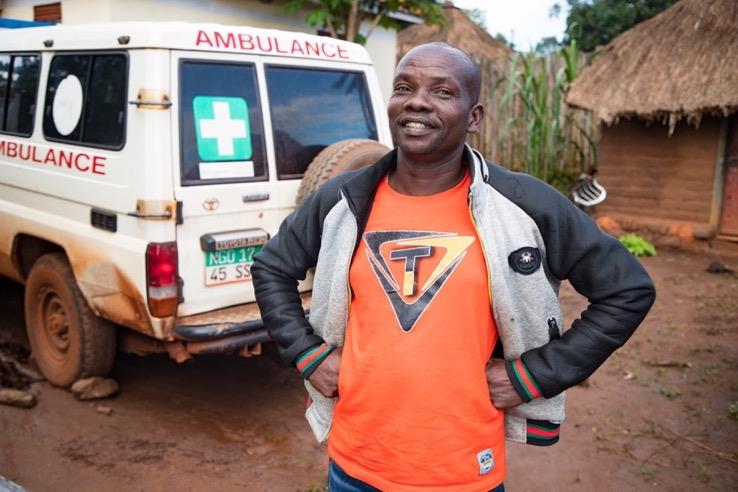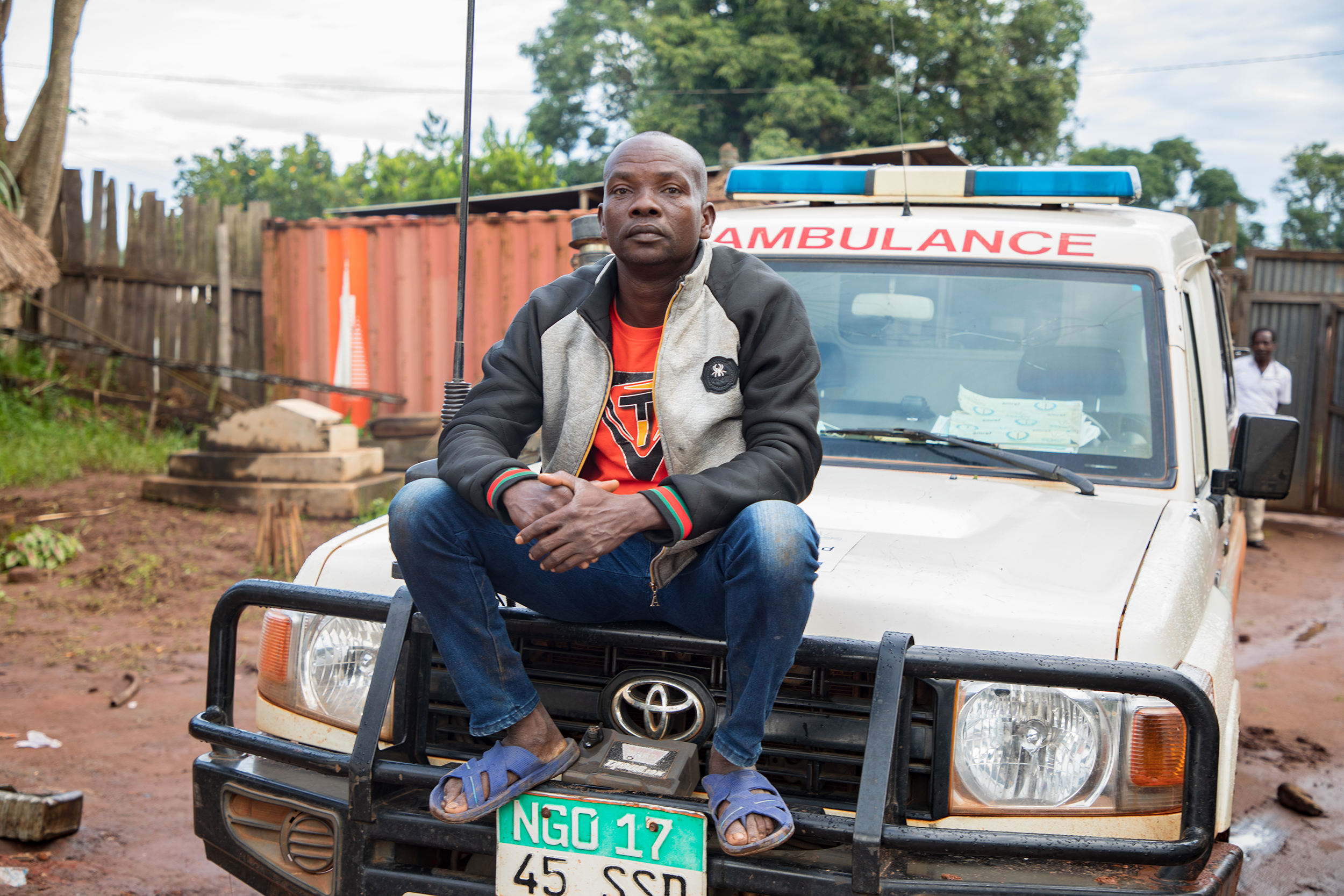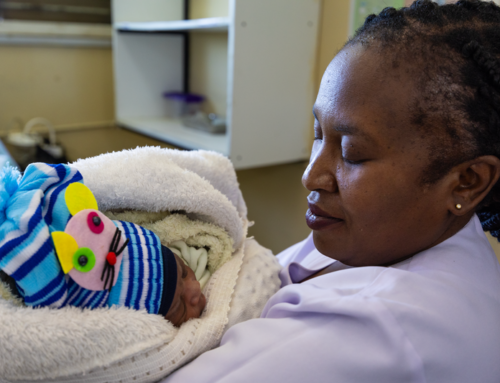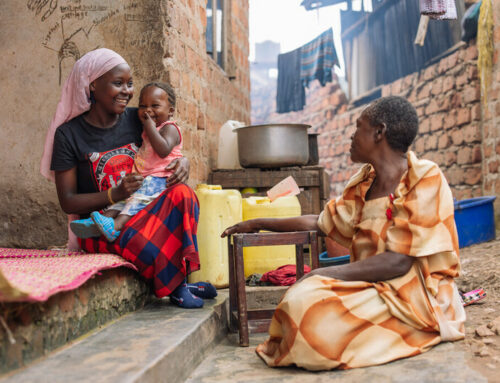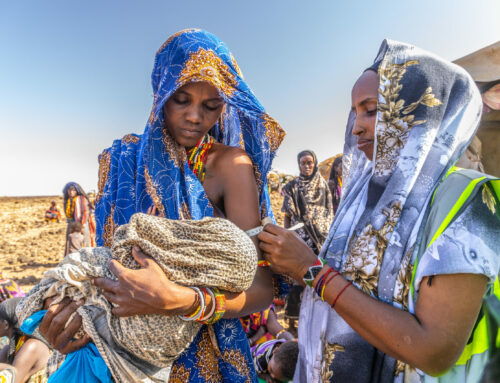Field Updates
Meet Simon, a Hero Driver in South Sudan
Story by Wesley Koskei
As a young man working as a school bus driver in the newly independent South Sudan, Simon never considered working for a hospital. What were the odds considering that his community faced the threat of recurring conflicts or weakened health systems, on top of the fact that he had never driven an ambulance before? But his motivations were how great it would be to save a life.
Trained as a first aider, his work is full of challenges as he covers a large county as wide as 57 miles, with inaccessible areas and one of the most isolated places in South Sudan. While there is a network of roads that link towns and many communities, none of these roads are fully paved. During the rainy season, accessing these roads is incredibly difficult. Waterlogged red-soiled roads cut through the temperate forests, and as you drive through the puddles, the endless greenery of vegetation stretches beyond the eye.
The most common emergency calls that Simon gets are usually hernias and expectant mothers. “If you delay when you get these calls, the patient can die,” he says, adding, “Even though sometimes it’s raining, it’s late at night; I have to show up to save the life.” He recalls an incident where he had to drive over five hours into a remote village after receiving a distress call from a family. The pregnant woman was in labor at home for over two days. “On our way back, with the expectant mother, there was a heavy storm, and we found a tree had blocked the road, “ he says. It took Simon about an hour to clear the tree, and that night, as he drove into the emergency wing on the eve of Christmas, he was worried about the mother’s state. Luckily, he was right on time, and the young mother successfully underwent a c-section, delivering baby Emmanuel.
Two months ago, another mother, Victoria, was in the ambulance fighting for her life, struggling with delivery complications. As Simon once again maneuvered the muddy road that rainy night, Victoria recalled how anxious and scared she was as her relatives held her hand at the back of the ambulance. As the baby announced its arrival with the first cry at the maternity ward, Simon sighed with relief as another complicated case ended happily.
Photos of Simon in front of his ambulance. Photo Credit: Kennedy Musyoka
But it isn’t always a happy ending for Simon, as he has lost patients on the way to the hospital. “I feel very sad whenever I lose the life of a patient when I was doing my best to get to the hospital,” he says. In South Sudan, complications during pregnancy and delivery are a leading cause of death among women. The recurring humanitarian crisis in the world’s youngest country has devastatingly affected access to and use health services.
Still, Simon is proud to be an ambulance driver because he helps his community access medical services, especially during emergencies. The future of South Sudan relies on the well-being of mothers and children, and it also depends on community health workers like Simon. They are everyday heroes in their community serving on the frontline.
“What makes me love my job, despite the challenges, is that I am helping my community and saving lives,” he tells us.
